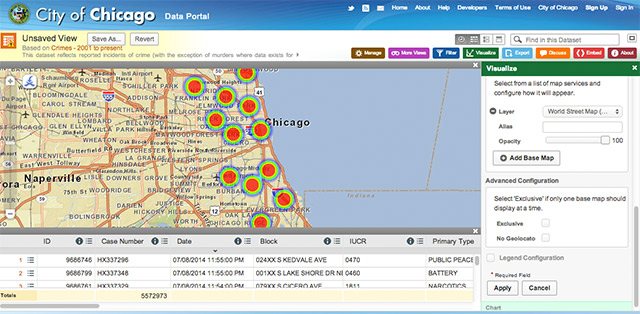 Cape Town is mulling over public comments to its draft proposal to provide open access to the city’s data. The city is developing plans to establish and populate a single online and open portal for data it’s generated and wants to make this free and accessible to everyone.
Cape Town is mulling over public comments to its draft proposal to provide open access to the city’s data. The city is developing plans to establish and populate a single online and open portal for data it’s generated and wants to make this free and accessible to everyone.
This move could prove valuable for developers wanting to build smartphone applications and services using the data. Equally relevant is the transparency and accountability that goes with making a city’s data available publicly — something that is sorely needed in South Africa’s public sector.
According to the Open Knowledge Foundation, a nonprofit organisation, open data is “data that can be freely used, reused and redistributed by anyone, subject only, at most, to the requirement to attribute and share alike, without any legal, technological or social restriction”.
A growing number of large cities worldwide have begun open data projects to make their data freely available to citizens. It’s proved to be highly successful. Leading by example is San Francisco, which scored highest in the recent US City Open Data Census. The US boasts 46 cities and counties that have implemented open-data policies.
San Francisco’s city planning division is creating a neighbourhood dashboard that it intends using to measure each community’s sustainability by looking at statistics such as energy, water usage, materials management, health, local habitat, community investment and mobility. Much of the city’s roll-out of open-data systems was inspired by Chicago’s WindyGrid, an open-source data system that acts as a repository for the city’s various departments. WindyGrid is one of the largest municipal data ventures of its kind and collects around 7m rows of data each day.
Real-world scenarios
But this data means nothing until its is implemented in a workable format and given a purpose. WindyGrid has given the Chicago a platform to work this data into a usable format for individuals and businesses wanting to make use of it.
Many of its uses are directly applicable to Cape Town’s project. For example, using automated sensors, Chicago can measure the quality of beach water and map that against water temperature over time. The city also maps potholes it has fixed. There are even data sets for energy usage measured by the square foot, throughout the city, and crime statistics over the past decade.
Data such as this will prove invaluable in South Africa, not only for transparency, but for assisting in the planning of public services.
Helsinki and London are two European cities that have also made significant advancements in the implementation and use of open data. London has implemented open-data initiatives to provide deeper insights into things like real-time traffic and public transport. There are a number of apps that have been developed by citizens that tap into this data, such as Bus Guru, which provides real-time information on London’s buses.
Helsinki also has a large number of applications that make use of Finland’s vast set of open data. They cover everything from the locations in the city that were bombed by the Soviet Union in World War 2 to the location of the country’s many snow ploughs that are needed throughout the year.
Reference points
The first port of call for anyone looking into open-data projects of cities around the world should be datacatalogs.org.
This project is a comprehensive list of data catalogues from around the world and is curated by a group of open-data experts, including representatives from local, regional and national governments, international organisations such as the World Bank, and numerous nongovernmental organisations.

Listed among some of the 200 entries on the site is Africa Open Data, a platform that aims to be the largest repository of data on the Africa continent.
Indeed, Africa Open Data has big plans. It wants to provide structured linked data with programming hooks that will allow developers to build applications and a system that will rate uploaded datasets. The platform is part of the Ujuzi Initiative, created and funded by the Africa Media Initiative, the World Bank Institute and Google.
The platform is still in beta, and there is little by way of datasets so far, but it’s a step in the right direction.
European and North American cities and countries are much further down the line with their open-data projects and there are hundreds of case studies that South African cities can tap into.
The benefits of open data for society go beyond transparency within government. Open data increases government efficiency by allowing government entities to work together more efficiently as they have a much broader set of data at their disposal.
It also allows government entities to learn from each other and share solutions to a wide range of problems, from service delivery to urban planning. Open data also breeds new innovation in cities and enables more efficient services for citizens. This is something that South Africa so desperately needs. Let’s hope Cape Town’s efforts to create open datasets prove fruitful and that this spurs on other South African cities to follow suit. — © 2014 NewsCentral Media

